Search
Did you mean: Levant?
Search Results
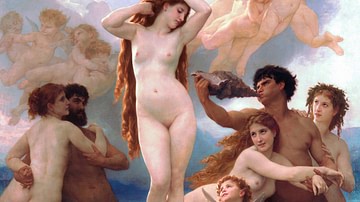
Definition
Greek Mythology
Greek mythology was used as a means to explain the environment in which humankind lived, the natural phenomena they witnessed and the passing of time through the days, months, and seasons. Greek myths were also intricately connected to religion...

Definition
Viking Ships
Viking ships were built by the Scandinavians during the Viking Age (c. 790 CE - c. 1100 CE) and were used both within Scandinavia and beyond for purposes ranging from being the most important means of transport to trade and warfare. Viking...

Definition
Knights Templar
The Knights Templar were established c. 1119 and given papal recognition in 1129. It was a Catholic medieval military order whose members combined martial prowess with a monastic life to defend Christian holy sites and pilgrims in the Middle...
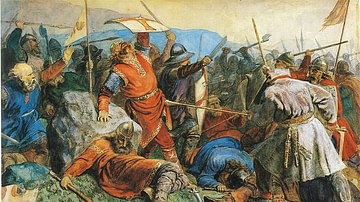
Definition
Viking Warfare
Viking warfare, along with its key component of raiding, is inextricably connected with the expansion of Scandinavian influence along the North Atlantic and into the Mediterranean in the Viking Age (c. 790-1100 CE), where the Vikings' heavy...
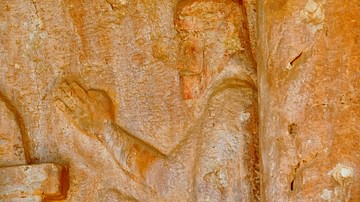
Definition
Ancient Persian Religion
Ancient Persian religion was a polytheistic faith which corresponds roughly to what is known today as ancient Persian mythology. It first developed in the region known as Greater Iran (the Caucasus, Central Asia, South Asia, and West Asia...

Definition
Lagertha
Lagertha (also spelt Lathgertha or Ladgerda) is a legendary Viking shieldmaiden known from Saxo Grammaticus' early 13th-century CE Gesta Danorum. In this work, written in Latin and concerning Danish history, she is the first wife of Ragnar...

Definition
D-Day
D-Day was the first day of Operation Overlord, the Allied attack on German-occupied Western Europe, which began on the beaches of Normandy, France, on 6 June 1944. Primarily US, British, and Canadian troops, with naval and air support, attacked...

Definition
Hipparchus of Nicea
Hipparchus of Nicea (l. c. 190 - c. 120 BCE) was a Greek astronomer, geographer, and mathematician regarded as the greatest astronomer of antiquity and one of the greatest of all time. He is best known for his discovery of the precession...
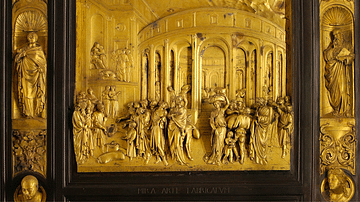
Definition
Lorenzo Ghiberti
Lorenzo Ghiberti (1378-1455 CE) was an Italian Renaissance sculptor and goldsmith whose most famous work is the gilded bronze doors of the Baptistery of Florence's cathedral. These doors, which took 27 years to complete, were so impressive...
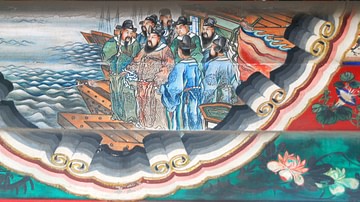
Definition
Cao Cao
Cao Cao (c. 155-220 CE) was a military dictator in ancient China during the end of the Han dynasty. Something more than a mere warlord, Cao Cao supported a puppet emperor and governed a large area of northern China. His attempts to unify...